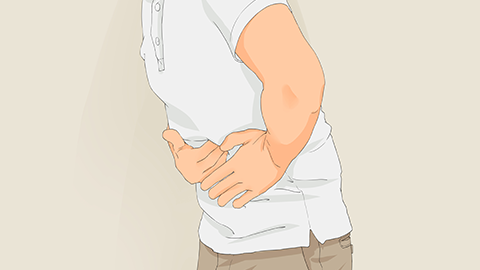What happens in case of gastrointestinal bleeding?
Generally, gastrointestinal bleeding refers to bleeding symptoms caused by ruptured blood vessels in the stomach. Depending on the volume and speed of the bleeding, it may lead to issues such as hematemesis (vomiting blood), melena (black tarry stools), anemia, abdominal discomfort, and risk of shock, posing varying degrees of threat to health. Detailed analysis is as follows:

1. Hematemesis: If there is a large and rapid volume of bleeding in the stomach, the blood may irritate the stomach and trigger a vomiting reflex, causing the patient to vomit blood. The color of the vomited blood is often bright red. If the blood remains in the stomach for a prolonged period, it reacts with gastric acid to form a coffee-colored substance, resulting in the vomiting of coffee-colored material.
2. Melena: After blood enters the intestines, the iron in hemoglobin undergoes a chemical reaction with substances in the intestine, forming black ferrous sulfide. This causes the patient to pass black, tarry stools. The stool is often sticky and glossy. Some patients may also experience increased frequency of bowel movements or a feeling of tenesmus (urgency to defecate).
3. Anemia: Chronic minor bleeding or acute massive bleeding can reduce the total blood volume in the body, leading to decreased levels of red blood cells and hemoglobin, which may cause anemia. Patients often appear pale, experience dizziness and fatigue, palpitations, and shortness of breath, with symptoms worsening after physical activity. In severe cases, patients may experience blurred vision, unsteadiness, and impaired ability to perform daily activities.
4. Abdominal discomfort: Bleeding may irritate the gastric mucosa or the underlying condition causing the bleeding, leading to abdominal discomfort. This often manifests as dull or burning pain in the upper abdomen. Some patients may also experience nausea and bloating, with symptoms worsening after eating, affecting normal eating and digestive function.
5. Risk of shock: When the speed and volume of gastrointestinal bleeding exceed the body's compensatory capacity, it can lead to a sharp decrease in effective circulating blood volume, causing hemorrhagic shock. Symptoms may include decreased blood pressure, rapid and weak pulse, cold and clammy extremities, and altered consciousness. Without timely treatment, it can be life-threatening.
It is recommended that individuals experiencing symptoms of gastrointestinal bleeding immediately stop eating and drinking, avoid strenuous activity, rest quietly, and seek prompt medical attention to determine the cause of bleeding and receive appropriate treatment. In daily life, it is important to maintain regular eating habits, avoid spicy, hard, or irritating foods, quit smoking and alcohol consumption, reduce damage to the gastric mucosa, and lower the risk of gastrointestinal bleeding.




